 W
WThe Josh Bernstein Uncensored Show is an American conservative talk show that Josh Bernstein daily airs. He is also known for his prior show on YouTube, The Josh Bernstein Show.
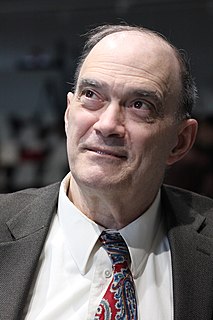 W
WWilliam Edward Binney is a former intelligence official with the United States National Security Agency (NSA) and whistleblower. He retired on October 31, 2001, after more than 30 years with the agency.
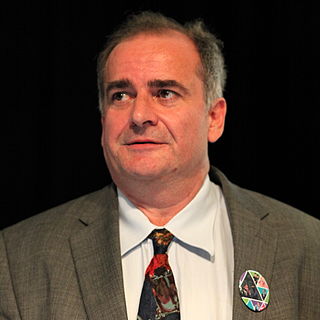 W
WCaspar Pemberton Scott Bowden was a British privacy advocate, formerly a chief privacy adviser at Microsoft. Styled as "an independent advocate for information privacy rights, and public understanding of privacy research in computer science", he was on the board of the Tor anonymity service. and a fellow of the British Computer Society. Having predicted US mass surveillance programmes such as PRISM from open sources, he gathered renewed attention after the Snowden leaks vindicated his warnings.
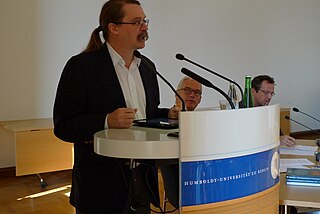 W
WJon Callas is an American computer security expert, software engineer, user experience designer, and technologist who is the co-founder and former CTO of the global encrypted communications service Silent Circle. He has held major positions at Digital Equipment Corporation, Apple, PGP, and Entrust, and is considered "one of the most respected and well-known names in the mobile security industry." Callas is credited with creating several Internet Engineering Task Force (IETF) standards, including OpenPGP, DKIM, and ZRTP, which he wrote. Prior to his work at Entrust, he was Chief Technical Officer and co-founder of PGP Corporation and the former Chief Technical Officer of Entrust.
 W
WKim Dotcom, also known as Kimble and Kim Tim Jim Vestor, is a German-Finnish Internet entrepreneur and political activist who resides in Queenstown, New Zealand. He first rose to fame in Germany in the 1990s as an Internet entrepreneur and was convicted on charges of computer fraud in 1994.
 W
WSamuel James Ervin Jr. was an American politician. A Democrat, he served as a U.S. Senator from North Carolina from 1954 to 1974. A native of Morganton, he liked to call himself a "country lawyer", and often told humorous stories in his Southern drawl. During his Senate career, Ervin was a staunch defender of the Jim Crow laws and racial segregation, as the South's constitutional expert during the congressional debates on civil rights. Unexpectedly, he became a liberal hero for his support of civil liberties. He is remembered for his work in the investigation committees that brought down Senator Joseph McCarthy in 1954 and especially for his investigation of the Watergate scandal in 1972 that led to the resignation of Richard Nixon.
 W
WCornelius Edward "Neil" Gallagher was an American Democratic Party politician who represented New Jersey's 13th congressional district in the United States House of Representatives from 1959 until 1973.
 W
WEva Galperin is the Director of Cybersecurity at the Electronic Frontier Foundation (EFF) and technical advisor for the Freedom of the Press Foundation. She is noted for her extensive work in protecting global privacy and free speech and for her research on malware and nation-state spyware.
 W
WJennifer Stisa Granick is an American attorney and educator. Senator Ron Wyden has called Granick an "NBA all-star of surveillance law." She is well known for her work with intellectual property law, free speech, privacy law, and other things relating to computer security, and has represented several high-profile hackers.
 W
WBrittany Nicole Kaiser is the former business development director for Cambridge Analytica, which collapsed after details of its misuse of Facebook data. Cambridge Analytica potentially impacted voting in the UK Brexit referendum and the 2016 U.S. presidential election. Kaiser testified about her involvement in the work of Cambridge Analytica before the UK Parliament and in private before the Mueller investigation.
 W
WDaniel Kaminsky was an American computer security researcher. He was a co-founder and chief scientist of WhiteOps, a computer security company. He previously worked for Cisco, Avaya, and IOActive, where he was the director of penetration testing. The New York Times labeled Kaminsky an "Internet security savior" and "a digital Paul Revere".
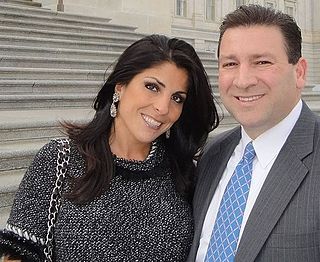 W
WJill Kelley is a philanthropist, socialite, activist and diplomatic advisor. She was also a former South Korean Honorary Consul, and honorary ambassador to U.S. Central Command in 2012 under Marine General James N. Mattis, then commander of U.S. military forces in the Middle East. She is currently the president of Military Diplomacy Strategies, an international advisory firm.
 W
WWerner Koch is a German free software developer. He is best known as the principal author of the GNU Privacy Guard. He was also Head of Office and German Vice-Chancellor of the Free Software Foundation Europe. He is the winner of Award for the Advancement of Free Software in 2015 for founding GnuPG.
 W
WJacob Kohnstamm is a retired Dutch politician and jurist who was State Secretary for the Interior from 1994 to 1998. He is a member of the Democrats 66 (D66), which he chaired from 1982 to 1986.
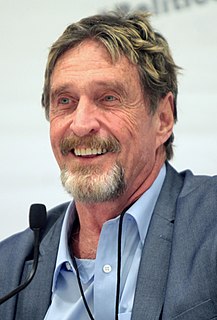 W
WJohn David McAfee was a British-American computer programmer, businessman, and two-time presidential candidate who unsuccessfully sought the Libertarian Party nomination for president of the United States in 2016 and 2020. In 1987, he wrote the first commercial anti-virus software, founding McAfee Associates to sell his creation. He resigned in 1994 and sold his remaining stake in the company. McAfee became the company's most vocal critic in later years, urging consumers to uninstall the company's anti-virus software, which he characterized as bloatware. He disavowed the company's continued use of his name in branding, a practice that has persisted in spite of a short-lived corporate rebrand attempt under Intel ownership.
 W
WNicholas Merrill is an American system administrator, computer programmer, and entrepreneur. He is the founder of Calyx Internet Access, an Internet and hosted service provider founded in 1995, and of the non-profit Calyx Institute. He was the first person to file a constitutional challenge against the National Security Letters statute in the USA PATRIOT Act and consequently the first person to have a National Security Letter gag order completely lifted.
 W
WMax Rufus Mosley was a British racing driver, lawyer, and president of the Fédération Internationale de l'Automobile (FIA), a non-profit association which represents the interests of motoring organisations and car users worldwide. The FIA is also the governing body for Formula One and other international motorsports.
 W
WThe Naked Society is a 1964 book on privacy by Vance Packard. The book argues that changes in technology are encroaching on privacy and could create a society in the future with radically different privacy standards.
 W
WRandal Howard Paul is an American physician and politician serving as the junior United States Senator from Kentucky since 2011. He is the son of former three-time presidential candidate and twelve-term U.S. Representative of Texas, Ron Paul.
 W
WRonald Ernest Paul is an American author, physician, and retired politician who served as the U.S. Representative for Texas's 22nd congressional district from 1976 to 1977 and again from 1979 to 1985, and then for Texas's 14th congressional district from 1997 to 2013. On three occasions, he sought the presidency of the United States: as the Libertarian Party nominee in 1988 and as a candidate for the Republican Party in 2008 and 2012. A self-described constitutionalist, Paul is a critic of the federal government's fiscal policies, especially the existence of the Federal Reserve and the tax policy, as well as the military–industrial complex, the war on drugs, and the war on terror. He has also been a vocal critic of mass surveillance policies such as the USA PATRIOT Act and the NSA surveillance programs. He was the first chairman of the conservative PAC Citizens for a Sound Economy, a free-market group focused on limited government, and has been characterized as the "intellectual godfather" of the Tea Party movement, a fiscally conservative political movement that is largely against most matters of interventionism.
 W
WMarc Rotenberg is President and founder of the Center for AI and Digital Policy, an independent non-profit organization, incorporated in Washington, DC. Marc is the editor of The AI Policy Sourcebook, a member of the OECD Expert Group on AI, and helped draft the Universal Guidelines for AI. He teaches the GDPR and privacy law at Georgetown Law and is coauthor of Privacy Law and Society and The Privacy Law Sourcebook (2020). Marc is a founding board member and former Chair of the Public Interest Registry, which manages the .ORG domain.
 W
WBruce Schneier is an American cryptographer, computer security professional, privacy specialist, and writer. Schneier is current a Lecturer in Public Policy at the Harvard Kennedy School and a Fellow at the Berkman-Klein Center for Internet & Society. He is a board member of the Electronic Frontier Foundation, AccessNow, and the Tor Project; and an advisory board member of EPIC and VerifiedVoting.org. Schneier is currently employed as the Chief of Security Architecture at Inrupt, Inc. in Boston, MA. He is the author of several books on general security topics, computer security and cryptography and a squid enthusiast.
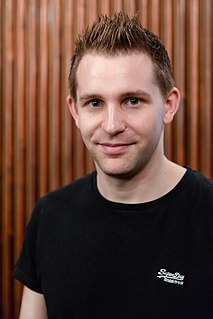 W
WMaximilian Schrems is an Austrian activist, lawyer, and author who became known for campaigns against Facebook for its privacy violations, including violations of European privacy laws and the alleged transfer of personal data to the US National Security Agency (NSA) as part of the NSA's PRISM program. Schrems is the founder of NOYB – European Center for Digital Rights.
 W
WWendy Seltzer is an American attorney and a staff member at the World Wide Web Consortium, where she is the chair of the Improving Web Advertising Business Group. She was previously with Princeton's Center for Information Technology Policy. Seltzer is also a Fellow with Harvard's Berkman Center for Internet & Society, where she founded and leads the Lumen clearinghouse, which is aimed at helping Internet users to understand their rights in response to cease-and-desist threats related to intellectual property and other legal demands.
 W
WRobert Ellis Smith was an American attorney, author, and a publisher/journalist whose focus is mainly privacy rights.
 W
WEdward Joseph Snowden is a former computer intelligence consultant who leaked highly classified information from the National Security Agency (NSA) in 2013 when he was an employee and subcontractor for the Central Intelligence Agency (CIA). His disclosures revealed numerous global surveillance programs, many run by the NSA and the Five Eyes Intelligence Alliance with the cooperation of telecommunication companies and European governments, and prompted a cultural discussion about national security and individual privacy.
 W
WMalte Spitz is a German Green Party politician and Executive Committee member. He works on media and privacy issues.
 W
WRichard Matthew Stallman, also known by his initials, rms, is an American free software movement activist and programmer. He campaigns for software to be distributed in a manner such that its users receive the freedoms to use, study, distribute, and modify that software. Software that ensures these freedoms is termed free software. Stallman launched the GNU Project, founded the Free Software Foundation, developed the GNU Compiler Collection and GNU Emacs, and wrote the GNU General Public License.
 W
WPaul Syverson is a computer scientist best known for inventing onion routing, a feature of the Tor anonymity network.
 W
WJohn Napier Tye is a former official of the U.S. State Department who came forward in 2014 as a whistleblower seeking to publicize certain electronic surveillance practices of the U.S. government under Executive Order 12333. He later co-founded a legal organization, Whistleblower Aid, intended to help whistleblowers in multiple sectors forward their concerns without incurring legal liability.
 W
WJessamyn Charity West is an American library technologist and writer known for her activism and work on the digital divide. She is the creator of librarian.net. She is the Vermont Chapter Councilor of the American Library Association, and was Director of Operations at the massive group blog MetaFilter from 2005 to 2014.
 W
WPhilip R. Zimmermann is an American computer scientist and cryptographer. He is the creator of Pretty Good Privacy (PGP), the most widely used email encryption software in the world. He is also known for his work in VoIP encryption protocols, notably ZRTP and Zfone. Zimmermann is co-founder and Chief Scientist of the global encrypted communications firm Silent Circle.